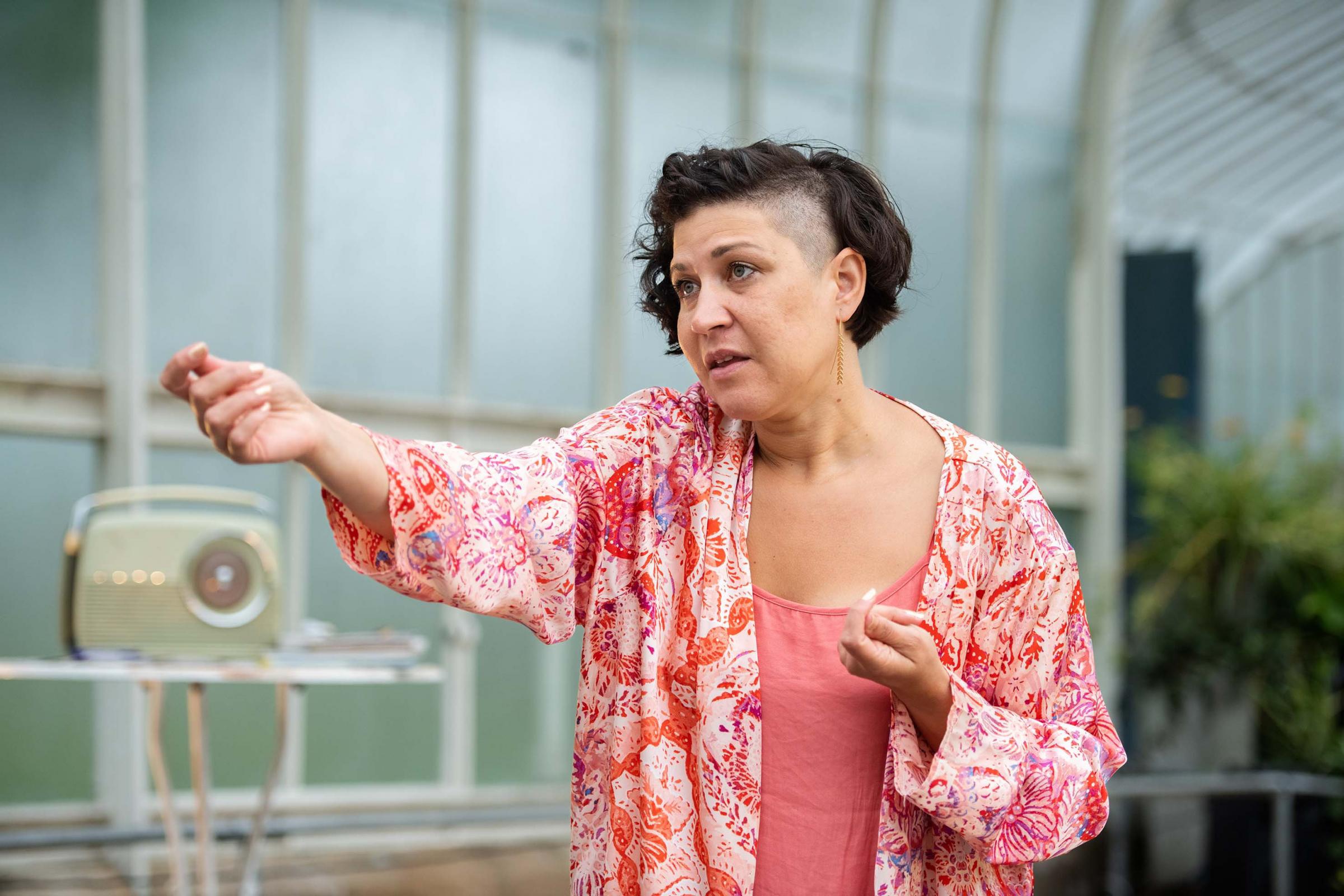
HERE in Scotland, we can tend to be too modest about our local talent. Glasgow-based actor Nicole Cooper is a case in point.
A graduate of what is now the Royal Conservatoire of Scotland, Cooper is a mainstay of Glasgow’s annual Shakespeare mini-festival Bard In The Botanics.
She is, surely, one of very few female actors to have played three male lead roles in Shakespeare plays – namely Coriolanus (for which she received the Best Female Performance gong at the annual Critics’ Awards for Theatre In Scotland), Hamlet (for which she received a CATS nomination) and Prospero (which she played for Glasgow’s Tron Theatre Company last year).
Cooper is an actor of great emotional dexterity and resonating humanism. If she was based in London, New York or Los Angeles, she would have theatre directors (and, I suspect, filmmakers) beating down her door. Here in Caledonia, however, she has received warm acclaim, but nothing like the accolades she deserves.
Bard In The Botanics’s artistic director Gordon Barr has decided – perfectly reasonably, and excitingly – to stretch his festival’s remit to encompass Shakespeare’s antecedent, the Ancient Greek tragedian Euripides. In casting the Greek’s great play Medea (in a beautifully sparse, lyrical new version by Kathy McKean), the choice of Cooper for the titular lead was, as the Americans say, a “no-brainer”.
Playing in the perfectly intimate environs of the Kibble Palace glasshouse, Cooper leads a fine cast of just four in an utterly scintillating 90 minutes of theatre. Euripides takes up the story of Medea (semi-divine granddaughter of the sun god Helios) and her husband Jason (of the Golden Fleece fame) at the point when their marriage is torn apart.
The couple are living in Corinth with their two sons when Jason – caring not a jot for the feats of magic and appalling crimes against her family that Medea has committed on his behalf – declares that he is to marry the young Corinthian princess, Glauce. An outsider – Medea hails from Colchis (in modern-day Georgia) – she faces not only the anguish and humiliation of Jason’s betrayal, but also xenophobic contempt and a ruinous expulsion from Corinth.
What ensues is, on Medea’s part, one of the most violent and emotive acts of revenge in the entire dramatic canon. Half-goddess though her character is, Cooper’s Medea is very much a mortal woman of flesh and blood.
The actor – who is of Zambian and Greek descent – rails against her plight, speaking in Greek in her moments of greatest anguish. Reasoning with us, the audience (who stand in for the people of Corinth), at a Covid-defying proximity, Cooper gives a performance of such emotional depth and intellectual gymnastics that one almost wills her on to her terrible retribution.
Fabulous though her male Shakespeare roles have been, one can’t help but feel – as Medea insists on the superiority of motherhood over fatherhood (her children are, she says, still within her body) – that Cooper’s Medea has an additional, powerfully undeniable truth.
That, perhaps, explains why, in my many years of reviewing Bard In The Botanics, this is the first time I have seen most of the audience rise in a standing ovation.
This is, for sure, Cooper’s Medea, but praise is due to director Barr for creating such a tight, resonating production. Praise, too, to Johnny Panchaud (whose Jason is the very picture of alpha-male arrogance), Isabelle Joss (a wonderfully sympathetic, working-class, Scottish nurse) and Alan Steele (equally compelling as Creon, King of Corinth, and the vacillating tutor).
Noel Coward’s comedy Private Lives is a far less epic proposition than Euripides’s great tragedy. It is, however, a popular staple of the English theatrical repertoire, and a natural choice for Pitlochry Festival Theatre, where Coward is an audience favourite.
The play is a five-door farce in which louche, wealthy English divorcees Elyot (the appropriately rakish Tom Richardson) and Amanda (a suitably sharp-yet-shallow Amelia Donkor) find themselves in adjacent hotel rooms while honeymooning with their new spouses in Normandy. As things, inevitably, turn pear-shaped, the action transfers to an opulent apartment in Paris, in which Elyot and Amanda are rekindling their former passion.
I confess readily that I have never understood the continued enthusiasm for Coward. His witty upper-class characters (“very flat, Norfolk,” says Amanda) are much less amusing, and carry far less satirical bite, than those of the great Oscar Wilde.
That said – an unintentionally humorous moment when a stagehand could be seen through the doors of the Paris flat notwithstanding – director Amy Liptrott’s production is jolly, well-paced, nicely designed (by Ken Harrison) and universally well acted. As ever with Coward, however, I couldn’t help but wish I was watching a Wilde play instead.
Medea is at the Botanic Gardens, Glasgow until July 9: bardinthebotanics.co.uk Private Lives is at Pitlochry Festival Theatre, various dates until September 30: pitlochryfestivaltheatre.com







